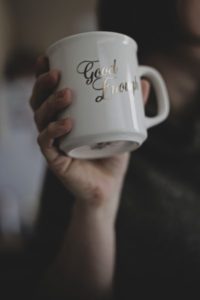No One’s Perfect: Perfectionist Disorder Help
Take a moment to reflect on the qualities you value in yourself. For many of us, a term like “hardworking,” “a go-getter,” or “ambitious” might rank somewhere near the top of our list. We might value the effort we are willing to put into our work, our appearance, our relationships, or finding an overall sense of success. Many of us are searching for that moment where we can look at our lives and say “I’ve made it and now I can feel good about myself.” This is where perfectionist disorder comes in.
Now, take a moment to reflect on what “making it” would look like. What expectations do you hold yourself to and how will you know you’ve succeeded in meeting them? This question might elicit a list of goals you are working toward or status symbols you are working to achieve. Many of us have high expectations of ourselves and work hard to meet expectations of ourselves and work really hard to meet those expectations.
Society of Perfection Disorders
In the United States, we have become a society of achievement oriented people often driven by our desire to be the best and to prove ourselves. Many of us gain a sense of purpose and self-worth from our achievements. We work long hours to attain tangible proof of our value in the world. We tell ourselves, “If I can just get that job, or that promotion, or that house or car, or body, then I will be happy. Then I can slow down and enjoy my life.” But, what happens when we reach these goals and what happens when we don’t?
We all like to say we don’t expect perfection, but it is the thing many of us strive for anyway. The dictionary definition of perfection is “the condition, state, or quality of being free or as free as possible from all flaws or defects.” As we begin to expect perfection from ourselves, we continuously set ourselves up for increased anxiety followed by disappointment and a diminished sense of self-worth. No one can achieve perfection, because as humans, not a single one of us is perfect.
Psychological Perfectionist Disorder
According to the American Psychological Association, rates of perfectionist disorder in the United States have increased dramatically since the 1980s. A study conducted among English-speaking cultures such as Canada, America, and the UK, Curran and Hill found that the proportion of people who showed perfectionist traits had risen 33% from 1989 to 2016. Another study conducted by Kathleen Kawamura looked at cultural differences in perfectionism. She found that Asian-American students exhibited significantly higher rates of perfectionistic traits than their Caucasian-American counterparts.
Culture plays an important role in the way we view ourselves and the expectations we hold ourselves to. This study found that parents who came from Asian cultures had higher achievement based expectations of their children, which was carried over into the children’s expectations of perfection in themselves, especially as it related to academic achievement. While this is only one example, I believe it’s important for us to stop to think about the ways in which our environment, society, parents, or teachers impact the way we treat ourselves. Did you grow up feeling that there were high expectations placed on you to achieve or behave in a certain way?
Working as a therapist, and from personal experience, I have seen the way perfectionism impacts one’s mental health. Perfectionist disorder is tied to higher rates of depression, anxiety, and eating disorders. We work so hard to achieve our goals and meet our expectations. When all of that work finally pays off, we rarely take the time to appreciate it before looking ahead to the next accomplishment. We often punish and berate ourselves for the mistakes we inevitably make along the way and feel a sense of disappointment or depression when we don’t meet our unrealistic expectations.
This cycle is made worse by the messages we receive from the outside world. We are surrounded by highly curated images of other people’s lives, filled with career success, expensive homes, and elaborate vacations. We don’t get to see the way others struggle, so we feel defeated when we struggle. This only pushes us to keep striving for the perfection we perceive in others.
The Perfectionism Trap
The trap of a perfectionist disorder in our achievement oriented society, leaves us feeling generally unfulfilled, dissatisfied, and exhausted. We never feel like we’ve really accomplished anything because we are too focused on our flaws and always looking toward the next thing we have to achieve. I have found myself caught in this trap often. Even in writing this post, I have struggled with getting out of the perfectionist trap.
I have written and rewritten this blog post over and over again, trying to make sure it’s “perfect.” Pretty ironic when I’m writing about all the ways perfectionism hurts us. I have high expectations of myself and I have to consciously remind myself that I am not a perfect person and this doesn’t have to be a perfectly written blog. I have had to take a moment to examine my expectations, just as I asked you to do at the beginning. I would like to share some ways I have found helpful in challenging my achievement oriented perfectionist tendencies in hopes they can help you escape the trap.
- Mindfulness/Meditation
- Practice self-compassion; take the time to say kind things about yourself or practice self-affirmations
- Take the time to really celebrate your accomplishments
- Ask yourself what you would expect of someone you love
- Try to remind yourself to see yourself the way people who care about you see you
- Learn something new just for fun
- Find things you can do that you enjoy just because you enjoy them, not because you have to be good at them or because you’re working toward a goal
- Give yourself permission to slow down. Have that lazy Sunday!
- Journal about the things you are grateful for in your life
- Take a break from looking at the “perfect” lives of others on social media
- Remember that no one is perfect, not even you
Am I Okay?
Perfectionism hinders us from truly enjoying our lives. In my opinion, it is our imperfections and our flaws that make us who we are and makes each of us unique. If we were all perfect people, we would likely all be the same. I don’t know about you, but I don’t want to live in a world where everyone is the same perfect version of a human. Our flaws are what make us interesting and often help us feel vulnerable and connected with others. I find beauty in your imperfections and I hope you can learn to see that beauty too.
If you are interested in reading more or working on embracing your imperfections, I would highly recommend The Gifts of Imperfection by Brené Brown.
Tayler Deamon, LMFT
Primary Therapist
Cited Studies:
“Perfectionism Is Increasing Over Time: A Meta-Analysis of Birth Cohort Differences From 1989 to 2016” by Thomas Curran and Andrew P. Hill (https://www.apa.org/pubs/journals/releases/bul-bul0000138.pdf)
“Differences in Perfectionism Across Cultures: A study of Asian-American and Caucasian College Students” by Kathleen Y. Kawamura
(https://scholarworks.umass.edu/cgi/viewcontent.cgi?article=3470&context=theses)




